South-West Tsiganea is a country with centuries old traditions . The Trabant still drives around. A land of remote villages, where peoples from far and beyond once settled and brought in their culture. A land where borders disappear and water connects.
The musicians of Trio Trabant made their way down the River Trabo and marvelled the glroty of past and present. They started listening and playing. In the capital city of Trabantia, they found a sizzling mix of music and dance where all influences meet. And when you zoom in, the details stand out. Here women also dance the men’s dances, and everyone plays and dances with each other.
In South-West Tsiganea, musicians play on all occasions, for everyone, for city and country. Music for dancing, listening, mourning and for any party.

The blue Trabant drove to a remote place. Far away in the rural swamp at the foot of the South-West Tsiganean Carpathians. There used to be a border here, the road ended.
At the end of a cart track, Trio Trabant learned the cigányos and sebes cigányos from the gypsies of Örkő. Wooden houses, campfires, a river to wash oneself, beautiful people and music. A lót of beautiful music.
Melancholy and passion, fire in our hearts. That’s Örkő.

This song was written by Rabbi Yitzsak Taub in the second half of the18th-century in Nagykálló (Kaliv), eastern Hungary. It’s a popular song that is mostly about waiting … waiting for the end of the diaspora, the end of darkness. Until then, there is nothing but hope.
Symbol of hope is an enticing bird with yellow legs and blue wings. The bird has to wait, but will belong to me some day.
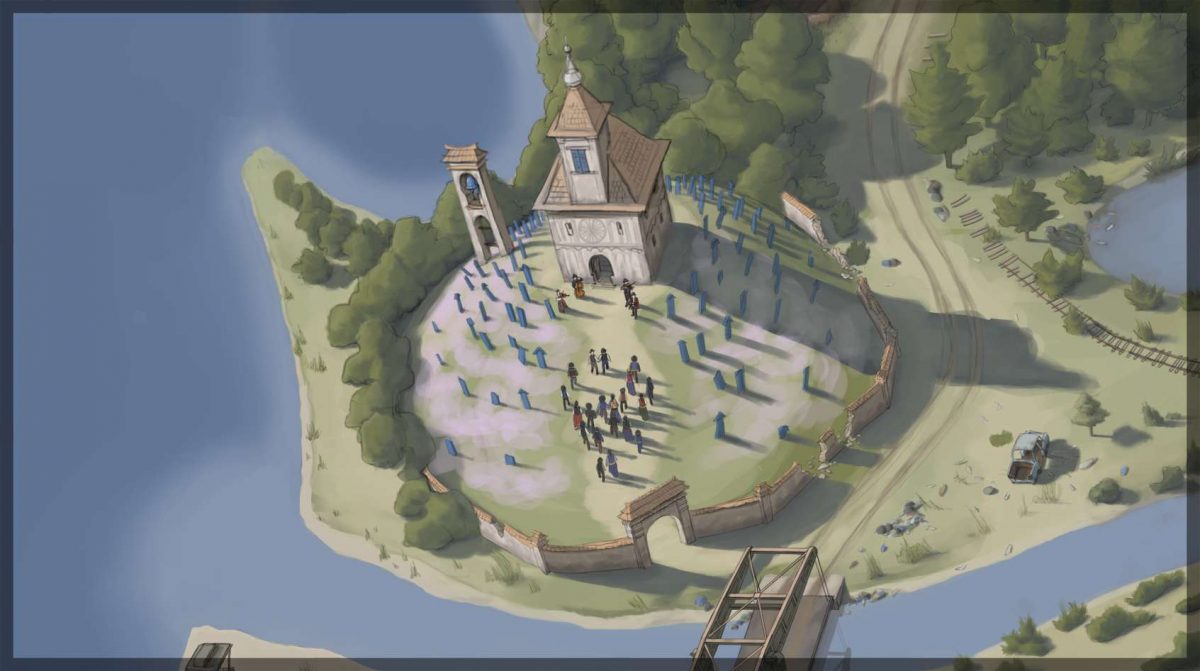
Two Romanian melodies, marșul miresei and învârtita, are combined in the South-West Tsiganean Carpathians with a Hungarian lament or hajnali. The marșul is a wedding march and the taragot reaches lyrical heights.
Then the învârtita Când eram mai mic comes. In Romanian the song describes the carefree youth that ended when I met you, my darling.
Finally, in the hajnali, translated into the Dutch dialect of Groningen, tragedy has struck. In a cemetery with blue flowers, in salty chill, the personator calls on the lost lover. Silent witness is the rampant blue bellflower, the Campanula carpatica.
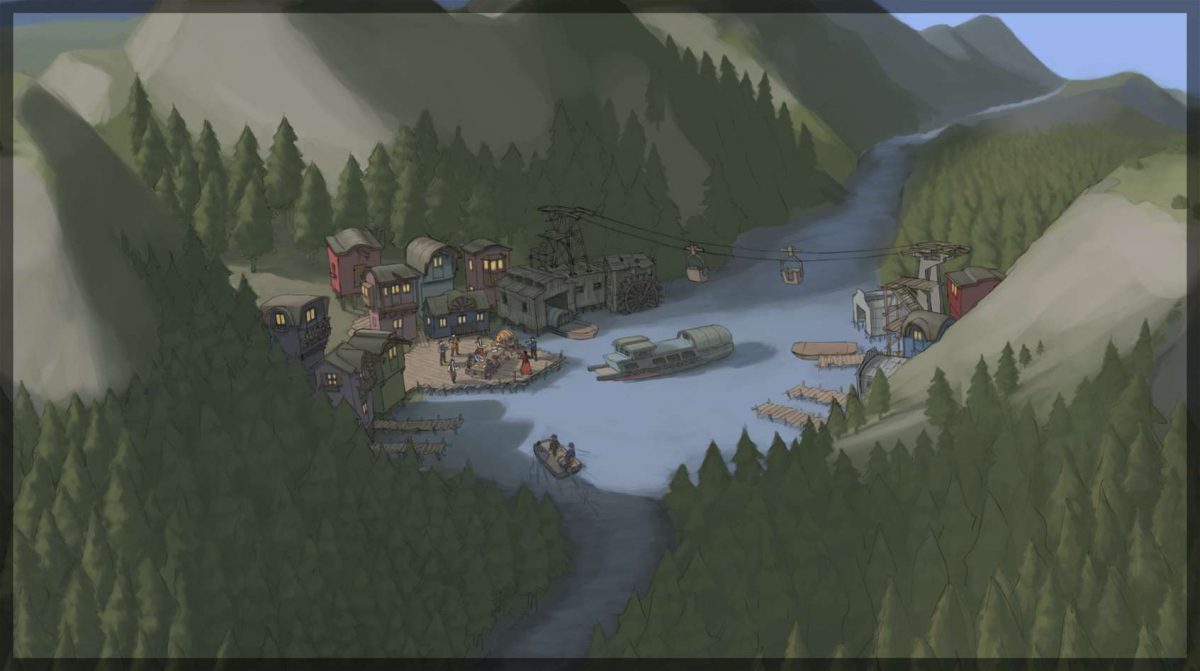
The simple melodies from Felcsik inspired to a variation with trumpet-violin, violin and clarinet. The sequel is a song about a flea, a freeloader.
A flea with a large nose, large eyes, large nails and a big belly. A visitor who often passes by, drinks immensely and hangs around till the party starts.
A party – accompanied by the ütőgardon (beat-cello) – where the csárdás inevitably turns into fast (friss) dances.
Symbol of hope is an enticing bird with yellow legs and blue wings. The bird has to wait, but will belong to me some day.
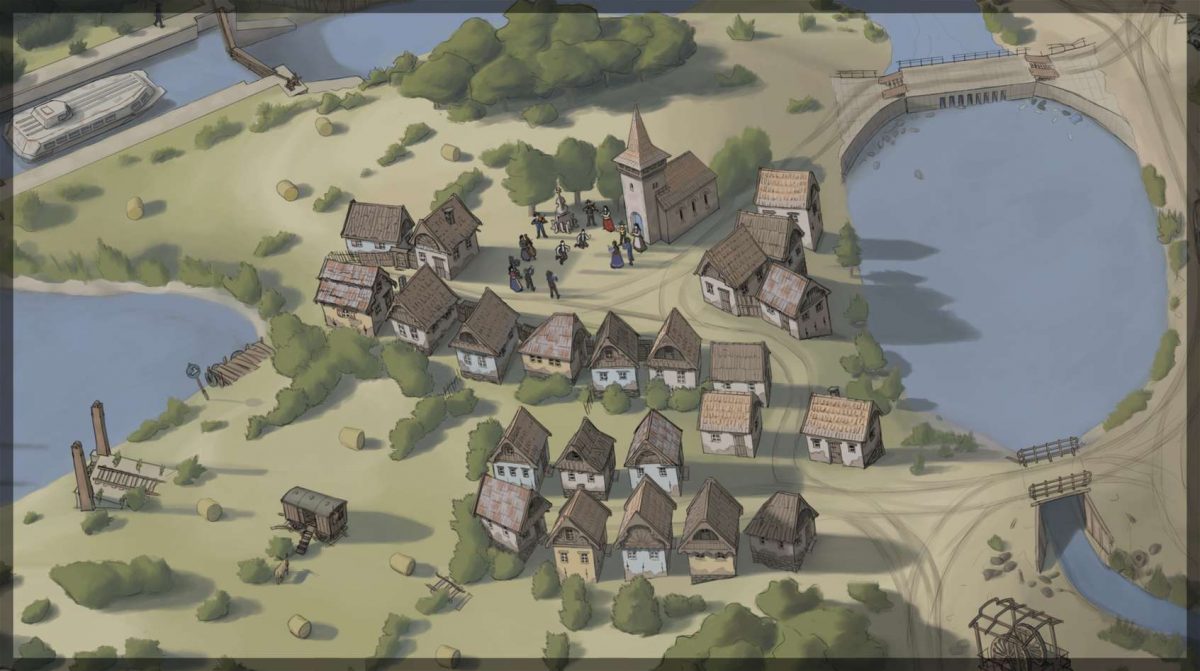
In Transylvania, in the lovely Kalotaszeg with its rich folkore in the village of Méra, one of the inspirations of Trio Trabant lived.
This series of men’s dance (legényes) and fast couple dance (szapora) is dedicated to the master violinist Sándor Fodor ‘Neti’ (1922-2004). A unique violin player who has added many variations to the music already so rich in itself. A true teacher in music. And a wonderful person!
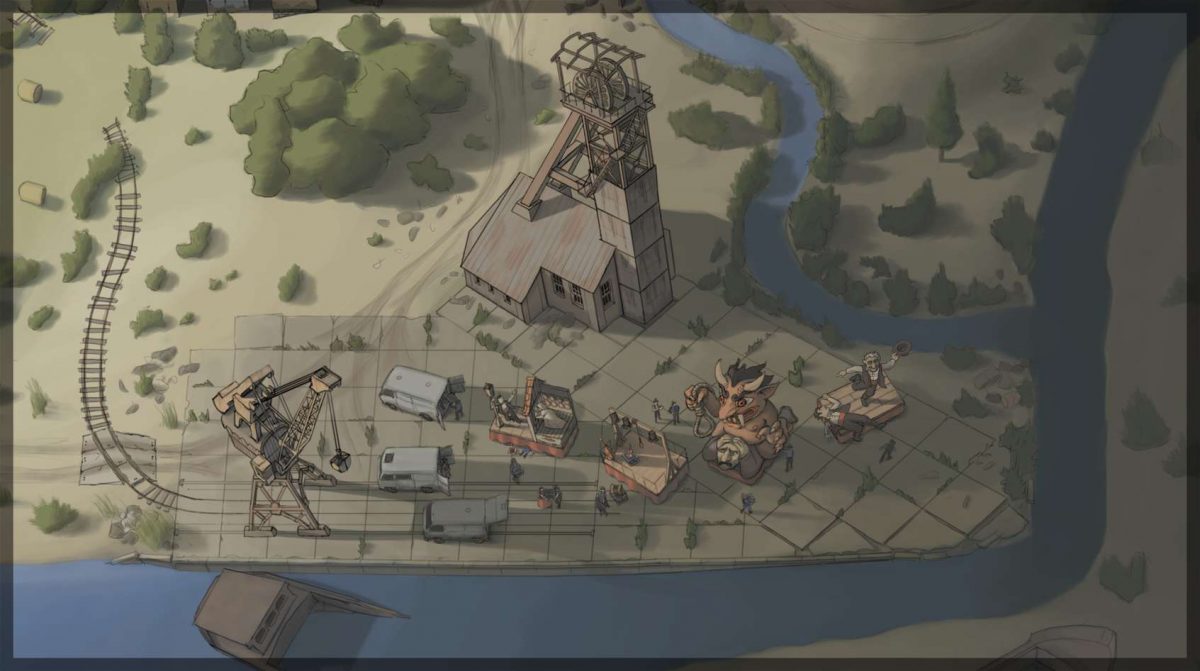
Okke Kluun was a murderer, the last person who got the death penalty in Groningen. The first song was originally composed as “Sanie cu zurgălăi” (sled with bells) by the Romanian/Jewish Stein.
Later there have been many other versions, including the song about the equally irresistible and insufferable Johnny. Trio Trabant links this tziganeasca to a part of the French chanson and adds a Groningen part to it,
followed by two songs in a gypsy language. In the first, a tormented man fights against the devil, in the second an old man, who never owned a penny, makes the young dancers look like beginners.

The suite starts with a doina. In this song of melancholy and desire, we think of shepherds, on infinite evenings, their sheep grazing on the slopes. A whistle, carved from a reed, provides a distraction, and the improvised melodies spread their melancholy far over the Carpathians.
After the loneliness of the hills there is a party, there is dancing on a Romanian hora. The dancers are in a circle and the steps are simple. Everyone can participate, young or old, woman or man and therefore the dance is very popular.
After the hora, the orchestra plays Joc de nuntă, wedding music. A rich buffet is presented on long tables. The food competes with the irresistible dance music which the musicians can keep up for a long time, sometimes for days.
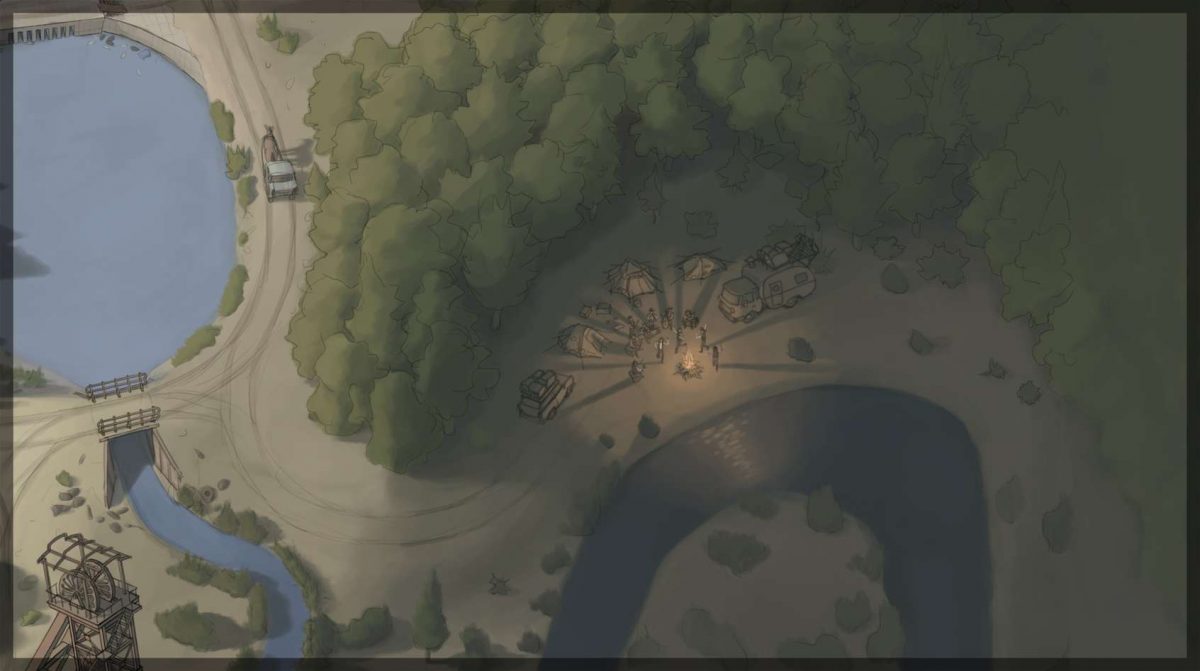
Dragu’ mi-i is a popular traditional Romanian song. Trio Trabant knows it through the French group Aksak. The taragot plays the intro.
The meaning of the song is ambiguous. We dance, there is fire, there is love, there is danger. Is there jumping over the fire? Has my sweetheart eaten fire or am I consumed by fire or passion? In South-West Tsiganea, everyone can fill in for themselves.
Accompanied by only the characteristic rhythmic support of the kanna, we weave in a piece of vibrant gypsy scat.
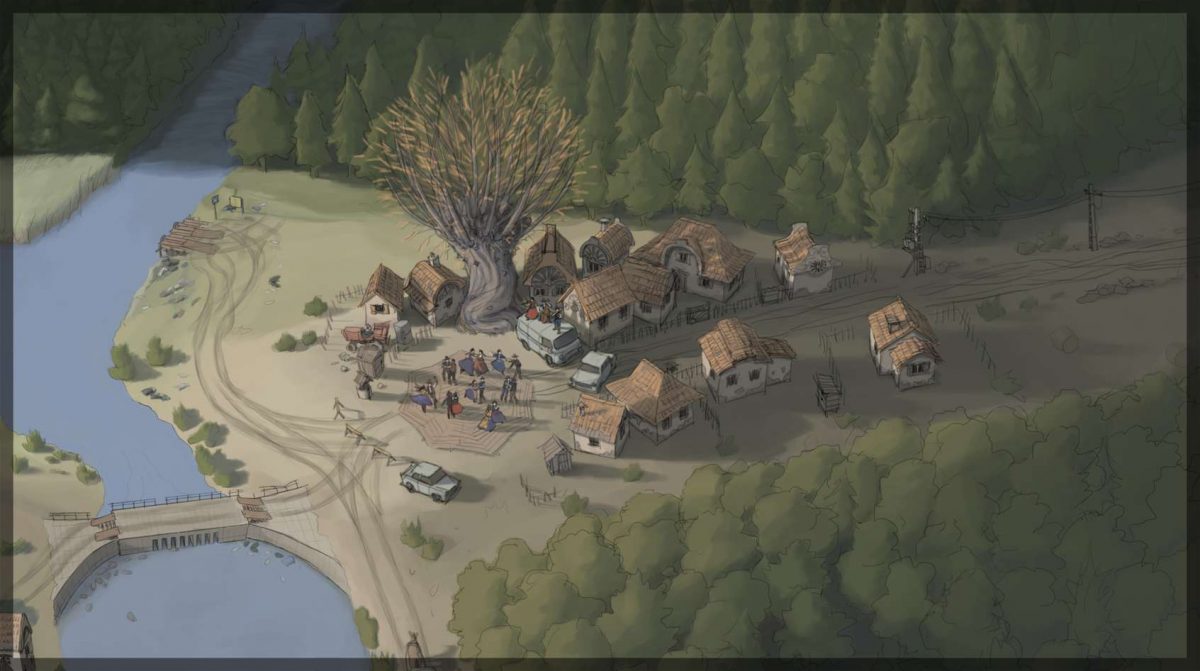
The music of Mezőség (Transylvanian Plain) is raw, poignant and heavy, with beautiful melodies. The dance series are immensely popular among a growing group of young South-West Tsiganea dancers in search of the roots of their culture.
Every evening the táncház (dance house) of Trabantia closes with Mezőség. From a Ördöngösfüzes dance series from Mezőség, Trio Trabant first plays a ritka magyar (slow men’s dance). A közjáték (interlude) leads via the cigánytánc (literally gypsy dance, a slow couples dance) to the sűrű csárdás (fast couples dance).
In Transylvanian music a double bass is usually one with only 3 gut strings, without the lowest string, E.
In the Ördöngösfüzes the rhythm function of the bass is priority. Therefore, the bass player only plays the lowest (A) string which is often tuned up to a B or even C.
This, in combination with a short bow, results in the typical raw sound that makes the bass also unamplified well audible for the dancers.
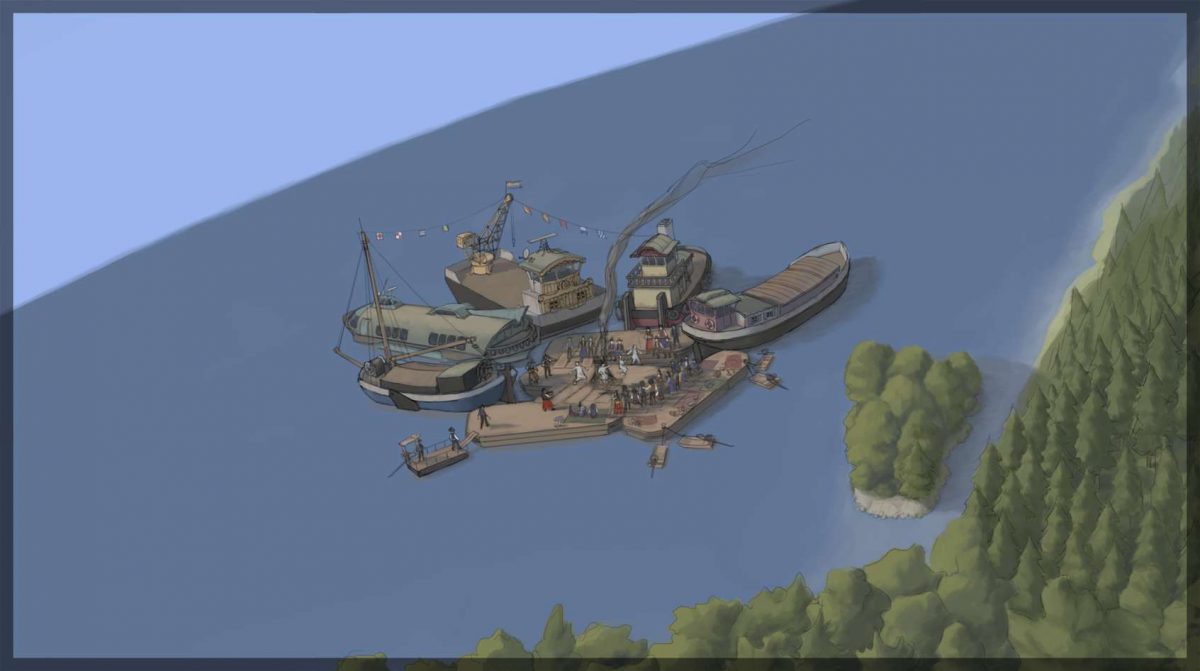
Ederlezi is a traditional song of the Roma gypsies. Ederlezi refers to a festival, with which the Roma celebrate the return of spring. It is on the name day of Saint George (May 6). The version of Goran Bregović in the Emir Kusturica’s film ‘Time of the Gypsies’ has made the song known.
It’s about the Roma who all dance the oro. Like the hora, the oro is a circle dance. As in many gypsy songs, there is an undertone of misery and trouble in the text, because one is too poor to contribute to the party.
| 1 | Trabant & Örkő | 06:53 |
| 2 | Szól a kakas már | 04:01 |
| 3 | Campanula carpatica | 06:32 |
| 4 | Two violins and a drum and a flea | 03:23 |
| 5 | Neti’s Kalotaszeg | 03:34 |
| 6 | Okke’s Tsiganeasca | 06:10 |
| 7 | Suită pentru clarinet | 04:00 |
| 8 | Dragu’ mi-i | 05:40 |
| 9 | Ördöngöszfüzes | 05:00 |
| 10 | Ederlezi | 04:32 |
Total playing time 49:45

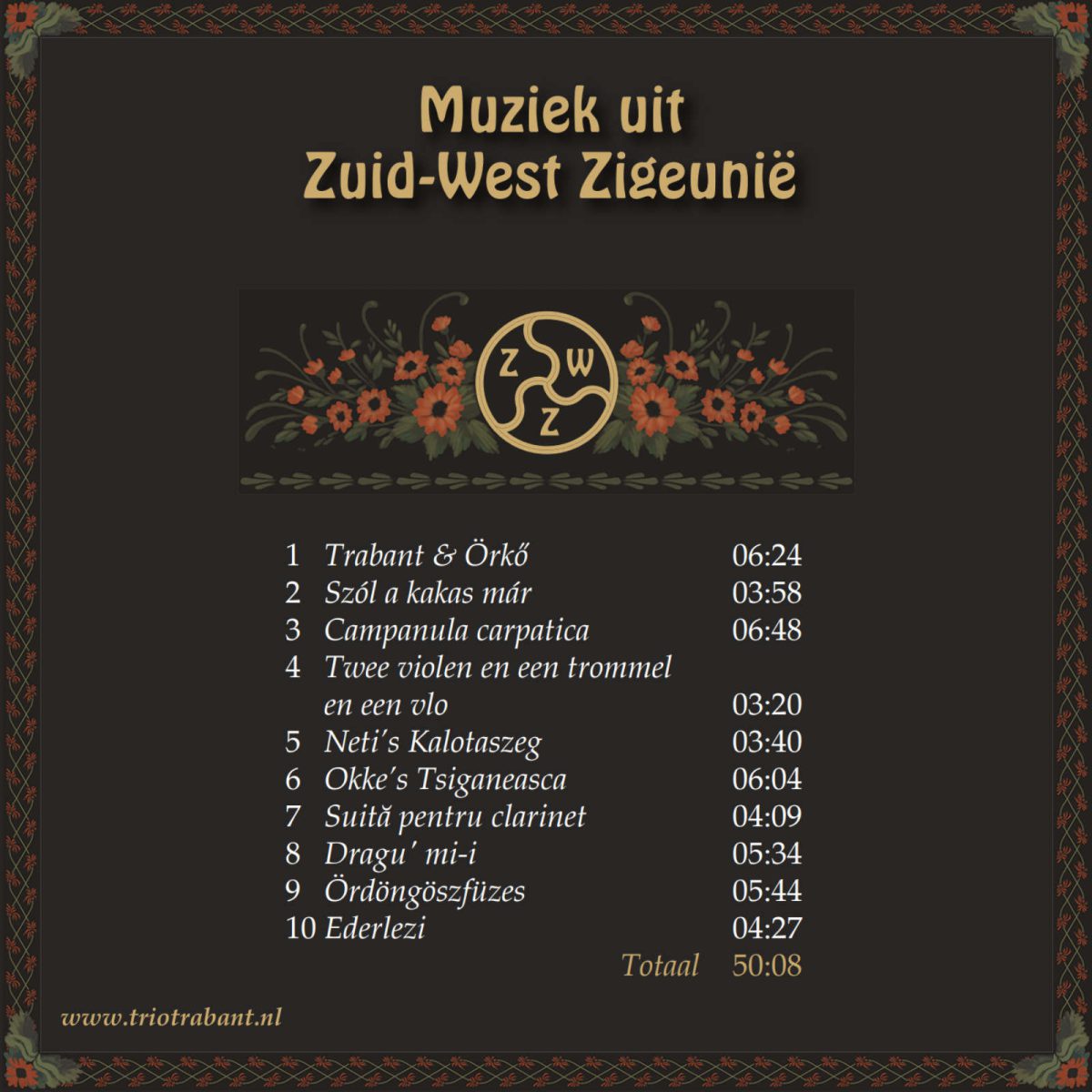

Onze nieuwsbrief NL
Our newsletter EN


Our newsletter EN
Our newsletter EN
